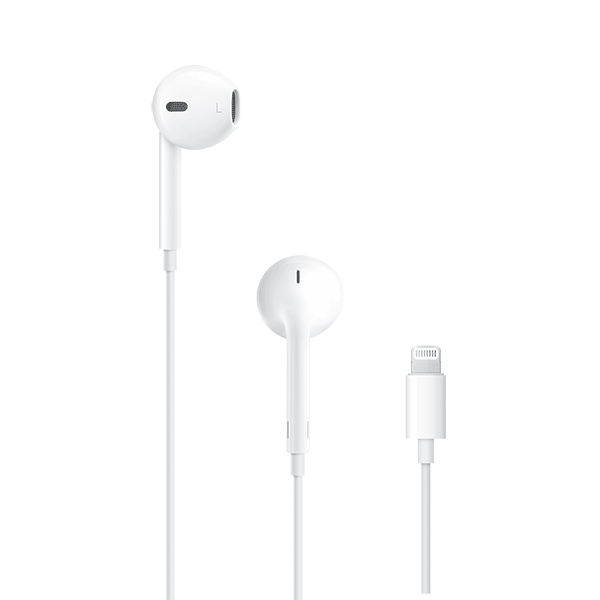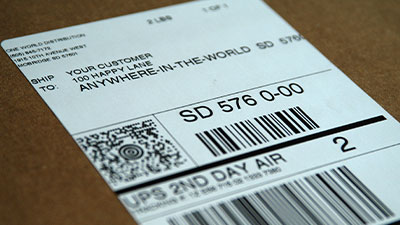Product personalization is helping online retailers cash in on the ecommerce revolution, making it easier to connect with their customers and turn first-time visitors into loyal brand advocates. Ecommerce product personalization allows customers to actively choose how to modify a product, like selecting a name to engrave on a water bottle.
The impact of ecommerce personalization is huge, leading to higher customer engagement and increased sales. 65% of ecommerce stores saw an increase in conversion rates after using a personalization strategy and 91% of consumers say that they’re more likely to shop with brands that remember their preferences and use them to provide relevant offers and recommendations.
65%
of ecommerce stores saw an increase in conversion rates after using a personalization strategy
Nowadays, shoppers expect a personalized journey that makes them feel special; anything less might send them running to competitors. Targeted offers and content are excellent ways to reach customers, but a new tactic is offering easy product customization and personalization to turn the ordinary into one-of-a-kind keepsakes.
Personalized-to-consumer fulfillment (P2C) provides endless personalization capabilities for each shopper. Offering special options like engraving or including personalized greeting cards with their order not only sets your brand apart but also strengthens the emotional bond customers have with your products.
Ecommerce product personalization isn’t a trend but a new way for brands that want to dominate their niche, increase average order values, and turn one-time buyers into loyal repeat customers. The best personalization strategies go beyond simple recommendations: they merge data, AI, and powerful fulfillment capabilities to deliver memorable customer experiences at scale.
As the five brand examples show — Amazon, Bright Cellars, Stitch Fix, Sephora, and Nike — personalization is now a must-have advantage. But what most brands overlook is how fulfillment and operations can unlock true personalization, transforming standard SKUs into highly custom, emotion-driven purchases that convert more visitors and build natural word-of-mouth marketing.
At One World Direct, we help ecommerce brands achieve this level of personalization through Personalized-to-Consumer (P2C) fulfillment — enabling custom engravings, embroidery, direct-to-object printing, and custom packaging that seamlessly integrates with your store. If you’re serious about boosting loyalty, AOVs, and word-of-mouth referrals, your next step is optimizing your personalization strategy end-to-end.
Amazon is the king of ecommerce for a reason. On average, Amazon gets 2.3 billion visits per month and dominates 37.8% of the total ecommerce market share in the United States. Personalization played a huge role in Amazon’s success, and it has pushed continuous innovation through a variety of tactics.
Their recommendation engine uses AI and machine learning algorithms to analyze customer data to provide highly personalized product recommendations. They also use personalized emails and targeted ads to engage customers at every touchpoint. By understanding what customers want and tailoring their shopping experience accordingly, Amazon has been able to dominate competitors.
Two main components power Amazon’s recommendation system:
In addition to product recommendations, Amazon also uses personalized marketing communications to further engage with their customers:
Search Customization: Amazon customizes search results for each user, prioritizing items based on their previous interactions, preferences, and what it knows about user behavior in general. This means two users searching the same term can receive different results. The majority of online shoppers start their search on Amazon because results adjust to their user profile, making it easier to find products they love.
You can apply these strategies to your own ecommerce brand:
Bright Cellars is a unique player in the ecommerce space that has completely changed how people buy wine. Customers are matched with wines they’re likely to enjoy based on their responses to a quiz designed to understand their preferences. They review customer responders and historical data to create personalized wine subscriptions for each shopper. Instead of offering a generic selection of wines, Bright Cellars focuses on each individual’s tastes and new members can try 6 bottles for just $55.
The key strategy behind Bright Cellars’ success is their personalized wine recommendations. Here’s how it works:
This approach allows Bright Cellars to create a truly unique and tailored experience for every customer. It also helps them learn more about their audience and continuously improve their product offerings. They’ve helped demystify wine pairing for novice enthusiasts. Visitors have a fun shopping experience and can confidently try new wines based on personalized recommendations.
Their company ethos is ‘finding wine you love shouldn’t be this hard.’ Customer can begin ranking their wine pairings and can enjoy discounted shipments using loyalty rewards. Their S.I.P. rewards program rewards customers for referrals or follows on social media, organically helping Bright Cellars build their online presence and visitor pipeline.
By focusing on personalization, Bright Cellars has been able to achieve several important goals:
Bright Cellars’ success story holds valuable lessons for other ecommerce businesses looking to implement personalization strategies:
Stitch Fix has made it easy for shoppers to find clothes they love. Through the clever use of customer data and style quizzes, Stitch Fix is able to offer carefully curated clothing recommendations that perfectly match individual style preferences, sizes, and budgets.
The secret behind Stitch Fix’s success lies in its ability to collect and analyze vast amounts of data. Here’s how they do it:
This meticulous approach to data ensures that every box from Stitch Fix is more than just a regular delivery—it’s a personalized fashion experience tailored specifically for each individual.
Machine learning plays a crucial role in Stitch Fix’s strategy:
For businesses looking to adopt a similar model, here are some key considerations:
Numerous studies have highlighted the significant benefits of Stitch Fix’s algorithmic approach, both in terms of sales growth and customer satisfaction:
Steady Monetization: Stitch Fix has an innovative ecommerce model that combines a $20 monthly styling fee with the revenue from purchased items, incentivizing personalized selections that increase the likelihood of purchases beyond the initial fee. Styling fees are credited towards purchases but keep customers coming back while offering a range of prices and maintaining a substantial inventory.
Sephora, a well-known beauty retailer, has been at the forefront of ecommerce personalization in the beauty industry. The company uses personalized marketing messages, product suggestions, and quizzes to drive an elevated buying experience, while also driving sales and fostering brand loyalty.
Sephora’s approach is centered around understanding each customer’s unique beauty preferences and needs. Some of the tactics they use include:
If you want to leverage the power of personalization like Sephora, here are some practical steps you can take:
Sephora integrates personalization into every facet of its business, which has fueled its rapid growth. They have over 25 million active members in their Beauty Insider loyalty program and they are the third largest online store in the personal care category behind Walmart and Amazon. Sephora has profited by simplifying online cosmetics and encouraging inclusive customizable beauty.
Nike has refined its approach to personalization in the sports apparel industry by focusing on customer-centric strategies and innovative digital experiences. Through services like Nike By You, formerly known as NIKEiD, customers can customize their footwear by selecting colors, patterns, and materials, making signature shoes without the hassle. Nike has harnessed the power of personalization in a number of ways:
Nike’s ecosystem of apps, including the Nike App, Nike Running Club (NRC), and Nike Training Club (NTC), plays a crucial role in gathering user data for personalized workout plans, product recommendations, and exclusive content tailored to user activity and preferences. Nike gathers extensive user data to gain insights into customer preferences and behaviors, allowing them to:
The shift towards a data-driven business model supports Nike’s direct-to-consumer initiative, Nike Direct, which significantly contributes to sales by offering personalized experiences that encourage customers to purchase directly from Nike. By using extensive data collection and a D2C ideology, Nike has seen huge success.
One of Nike’s biggest strengths is its use of recommendation algorithms to provide personalized shopping experiences. By employing artificial intelligence (AI) and machine learning technology, Nike can predict which products a shopper is most likely to be interested in. These algorithms take into account factors such as:
Investing in powerful recommendation systems can greatly improve an ecommerce website’s ability to show consumers products that catch their attention, potentially leading to higher sales and conversion rates. Nike can also use customer data to tailor its ads to individual preferences and demographics, increasing the likelihood of engagement and conversion.
Nike understands the importance of making customers feel special. The brand goes beyond just selling products, offering unique experiences that foster loyalty. Some examples include:
Nike Membership offers an added layer of personalization with exclusive product drops, access to new releases, and a suite of member benefits including expert guidance from trainers, member-only experiences, special offers, and free shipping on orders over $50. This membership not only fosters a sense of exclusivity but also rewards customers with personalized experiences and products, from customized sneakers through Nike By You to exclusive styles and colorways reserved for members.
74%
of Gen Zers are interested in personalized products
The examples we’ve explored demonstrate the power of ecommerce personalization in driving customer engagement and sales. Companies like Amazon, Bright Cellars, Stitch Fix, Sephora, and Nike have successfully implemented personalized strategies, such as tailored product recommendations and location-based marketing, to great effect.
Keep your business ahead of the pack by embracing new technologies and analyzing your customer data to better understand what they want. Experiment, analyze, and refine your tactics with a focus on data to ensure they meet your customers’ needs.
By personalizing their journey, you not only boost your chances of making a sale but also cultivate a community of loyal supporters. The real power of ecommerce personalization isn’t just in increasing sales; it’s in forging a strong, emotional connection between your brand and its audience, turning casual shoppers into lifelong fans.
When it comes to personalization, many ecommerce businesses overlook the importance of fulfillment. Wow your customers with elevating shipping experiences and personalized products using Personalized-to-Consumer fulfillment. We are an ecommerce fulfillment company that offers comprehensive fulfillment services for D2C or B2B businesses. Use our free P2C plugin which gives your customers the freedom to customize products with personalized embroidery and engravings. We also offer call center services with a team of US-based call center agents to handle your customer support through email, chats, or calls.
Get in touch with one of our personalization experts, and we will help take your business to the next level. Product personalization is a huge trend and is becoming a top demand for new shoppers. 74% of Gen Zers are interested in personalized products (vs. 67% of Millennials, 61% of Gen Xers, and 57% of Baby Boomers). Give your shoppers what they want and offer easy product personalization to boost revenue and convert more visitors into loyal brand enthusiasts.
Personalization leaders like Amazon and Nike have proven that custom experiences build unmatched loyalty and maximize customer lifetime value, but the real unlock is merging smart marketing with smart fulfillment.
One World Direct’s P2C Fulfillment Services give you the tools to:
Your next step? Schedule a free personalization strategy call with an OWD expert today. We’ll show you how to integrate P2C fulfillment into your store and grow revenue with zero guesswork.
Book your free consultation now — and start turning your products into premium, personalized items!
Product personalization means allowing shoppers to customize an item to make it unique to them. Examples include adding engraving to jewelry, embroidering names on apparel, customizing shoe colors, or including a personalized message in packaging. Major brands like Nike’s “Nike By You” and Etsy sellers with engraved gifts are classic examples.
Personalization drives sales by showing shoppers the most relevant products, encouraging larger orders, and creating an emotional connection with the brand. Studies show 91% of consumers prefer brands that offer personalized experiences, and retailers using personalization see up to a 20% lift in sales.
Adding personalization can be as simple as integrating a plugin or working with a fulfillment partner like One World Direct. You’ll want:
Personalized-to-Consumer (P2C) fulfillment is the process of preparing and shipping products that have been customized per the shopper's instructions. Unlike standard pick-and-pack, P2C fulfillment handles unique SKUs, personalized messages, custom packaging, and special handling, delivering a premium unboxing experience.
Absolutely! When shoppers receive a personalized product, especially with thoughtful packaging, they’re far more likely to return. Personalized items often become keepsakes, driving word-of-mouth referrals and stronger brand loyalty.

Fulfillment costs are based on three criteria: size, weight and delivery time.
OWD offers five service levels: economy (7-10 days); Standard (5-7 days), 2-Day, Overnight and International.

Example Weight: 1 ounce
Fulfillment | Postage | Total |
|---|---|---|
$1.75 | $3.64 | $5.39 |
Lorem ipsum dolor sit amet, consectetur adipiscing elit. Ut elit tellus, luctus nec ullamcorper mattis, pulvinar dapibus leo.
Lorem ipsum dolor sit amet, consectetur adipiscing elit. Ut elit tellus, luctus nec ullamcorper mattis, pulvinar dapibus leo.
Lorem ipsum dolor sit amet, consectetur adipiscing elit. Ut elit tellus, luctus nec ullamcorper mattis, pulvinar dapibus leo.
Lorem ipsum dolor sit amet, consectetur adipiscing elit. Ut elit tellus, luctus nec ullamcorper mattis, pulvinar dapibus leo.
Lorem ipsum dolor sit amet, consectetur adipiscing elit. Ut elit tellus, luctus nec ullamcorper mattis, pulvinar dapibus leo.
DDU means Delivery Duty Unpaid – where the buyer pays for all of the import fees at delivery.
Unexpected import fees give buyers sticker shock – not good. When they refuse to pay, you’ve lost a sale and must pay to return your product, or abandon it.
DDU is an old idea whose time has passed. For these reasons and more, OWD doesn’t recommend DDU for e-com sellers.
DDP is an acronym for Delivery Duty Paid. DDP means that the seller pays for all the duties and import fees.
With DDP, your customers won’t be surprised with unexpected customs charges – good!
With OWD’s landed cost calculator, your foreign customers will know exactly what their various VAT, customers and duties will cost. No unhappy surprises.
For large-scale operations needing a full solution in Europe, there’s OWD Europe, based in Amsterdam.

OWD handles phone calls, e-mails and web chat eighteen hours a day from our own state-of-the-art facility.
We’ll handle your inbound sales and customer service contacts.
You get career agents who speak American English and know how to sell.
$99 gets you 200 calls, e-mails or chats handled every week.
You get your own phone number and custom e-mail.
We do a lot more. Call for details.

The Voice of Your Brand
OWD’s all-inclusive Returns service provides simplicity and high-end customer service. OWD includes a pre-printed return label as part of your packing slip. Your customer need only drop it in the mail.
What’s included: packaging slip with return label, QC inspection, re-bag, re-tag and return to stock. What’s excluded: postage cost, poly bags and any special packaging.
